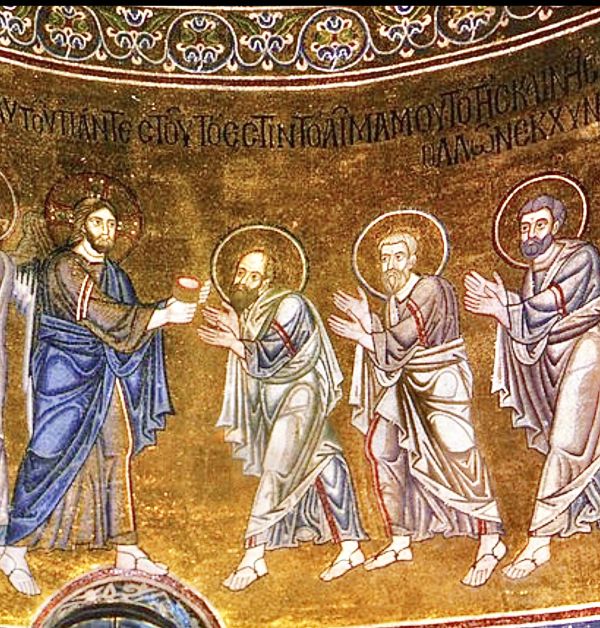The Risen Jesus manifested Himself several times to the disciples and, despite their unbelief and hardness of heart, sent them out into the world to proclaim the Gospel to every creature.
Francis was a proclaimer on every opportune and untimely occasion of the crucified and risen Christ. His inner experience had made him a Herald of the Word.
Consulting the Sources, in the Vita prima of Celano, we read:
"At the time when [...] he preached to the birds, the venerable Father Francis, travelling through towns and villages to scatter the seed of blessing everywhere, also arrived in Ascoli Piceno.
In this city he proclaimed the word of God with such fervour that all, full of devotion, by the grace of the Lord, flocked to him, eager to see and hear him.
The crowd was extraordinary, and as many as thirty, including clerics and lay people, became his disciples, receiving the religious habit from his own hands.
Men and women worshipped him with such faith that anyone who could touch his robe considered himself supremely fortunate" (FF 430).
"When he entered a town, the clergy rejoiced, bells were rung, men exulted, women congratulated, children applauded, and often went to meet him with twigs in their hands and singing psalms.
The heresy was covered with confusion, the faith of the Church triumphed; while the faithful were filled with jubilation, the heretics became fugitives.
The signs of his holiness were so evident that no heretic dared dispute with him, while the whole crowd obeyed him" (FF 431).
In his evangelical itinerary, going and proclaiming the Word to every creature under heaven was a vital dimension of following sine glossa in the footsteps of the Risen One.
But meeting the Poor Man was also an experience of great impact and resurrection for the people, because the Saint was an eloquent witness to newness of life.
«Going into all the world, preach the gospel to every creature» (Mk 16:15).
Octave of Easter Saturday (Mk 16:9-15)












